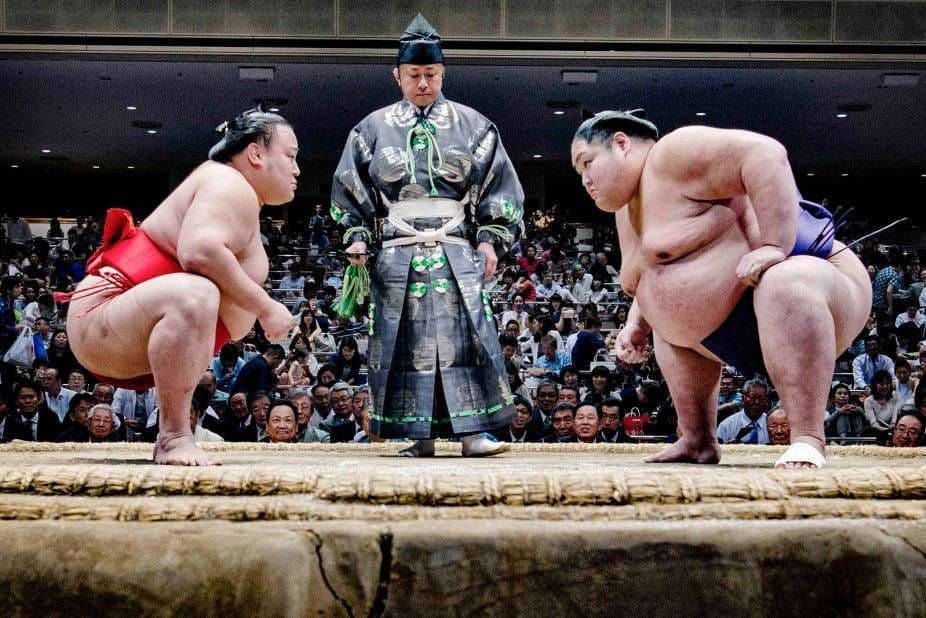We're loading the full news article for you. This includes the article content, images, author information, and related articles.
Japan's ancient sport of sumo wrestling is experiencing a significant surge in international popularity, drawing sold-out crowds and leveraging digital platforms to reach new fans worldwide, including in Kenya.

The Royal Albert Hall in London recently hosted a five-day Grand Sumo Tournament, marking only the second time this prestigious event has been held outside Japan in its centuries-long history. The event, which concluded on Sunday, October 19, 2025, showcased 40 elite wrestlers, known as rikishi, to thousands of captivated spectators. This rare international staging underscores a growing global fascination with sumo, a sport deeply rooted in Japanese culture and Shinto religious rituals.
The London tournament transformed the iconic Victorian concert venue into a traditional sumo arena, complete with a specially constructed dohyo (clay ring) and a roof designed to resemble a Shinto shrine. The intricate ceremonies preceding each bout, virtually unchanged for hundreds of years, held the audience spellbound, demonstrating the enduring appeal of sumo's rich traditions.
Sumo, meaning 'wrestling' in Japanese, traces its origins back over 1,500 years, with its first historically attested fights occurring in 642 AD. It evolved from ancient Shinto rituals performed to entertain deities and pray for bountiful harvests, becoming Japan's national sport. The sport is more than just a physical contest; it is a cultural spectacle where every match is imbued with rituals that pay homage to its religious beginnings.
The lifestyle of a rikishi is highly regimented, governed by strict rules from the Japan Sumo Association. Wrestlers live in communal training stables, known as heya, where their daily lives are dictated by tradition, from meals to dress. This adherence to tradition allows sumo to serve as a symbolic link between modern Japan and its historical and religious roots.
While sumo has always been popular in Japan, its international interest is a relatively new phenomenon. The sport's global reach has been significantly boosted by initiatives such as the Japan Sumo Association's English-language YouTube channel, 'Sumo Prime Time,' launched in 2022, which has garnered nearly 100,000 followers. Additionally, the 2023 Netflix drama series 'Sanctuary,' which offered Western audiences an inside look into the world of professional sumo, further elevated its international profile.
The recent London tournament, which sold out rapidly, highlights this burgeoning global appeal. Organisers are actively seeking to capitalise on this worldwide surge in interest, with another tournament already planned for Paris in 2026.
The Japan Sumo Association (JSA) is the governing body that regulates professional sumo matches and rankings. They have been instrumental in promoting the sport internationally. Matthew Todd, the Royal Albert Hall's programming director, emphasised the critical importance of understanding sumo's cultural and religious significance for an authentic presentation. Ukrainian wrestler Aonishiki expressed his desire to showcase the positive aspects of sumo to a wider audience, noting the rarity of seeing rikishi outside Japan.
Despite its growing international popularity, sumo faces challenges. The sport's rigorous lifestyle has a negative impact on wrestlers' health, leading to a lower life expectancy compared to the average Japanese man. Additionally, past controversies, such as a trainee's death in 2007 and a match-fixing scandal in 2010, have affected its reputation and ability to attract recruits. There are also concerns about misinformation regarding sumo online, highlighting the need for the JSA to control its narrative as global interest rises.
While the London event was a Grand Sumo Tournament, some past overseas events have been exhibitions rather than official tournaments where wins and losses count for rankings. This distinction can sometimes lead to misconceptions among international fans. The long-standing rule prohibiting women from entering the dohyo, considered a sacred space, remains a point of contention for some.
The planned tournament in Paris in 2026 indicates a continued effort by the Japan Sumo Association to expand sumo's global footprint. Observers will be watching to see how the sport adapts to its increasing international exposure while maintaining its deep-seated traditions. The potential for sumo to become an Olympic sport, having already been part of the World Games, is also a development to monitor.
Keep the conversation in one place—threads here stay linked to the story and in the forums.
Sign in to start a discussion
Start a conversation about this story and keep it linked here.
Other hot threads
E-sports and Gaming Community in Kenya
Active 9 months ago
The Role of Technology in Modern Agriculture (AgriTech)
Active 9 months ago
Popular Recreational Activities Across Counties
Active 9 months ago
Investing in Youth Sports Development Programs
Active 9 months ago